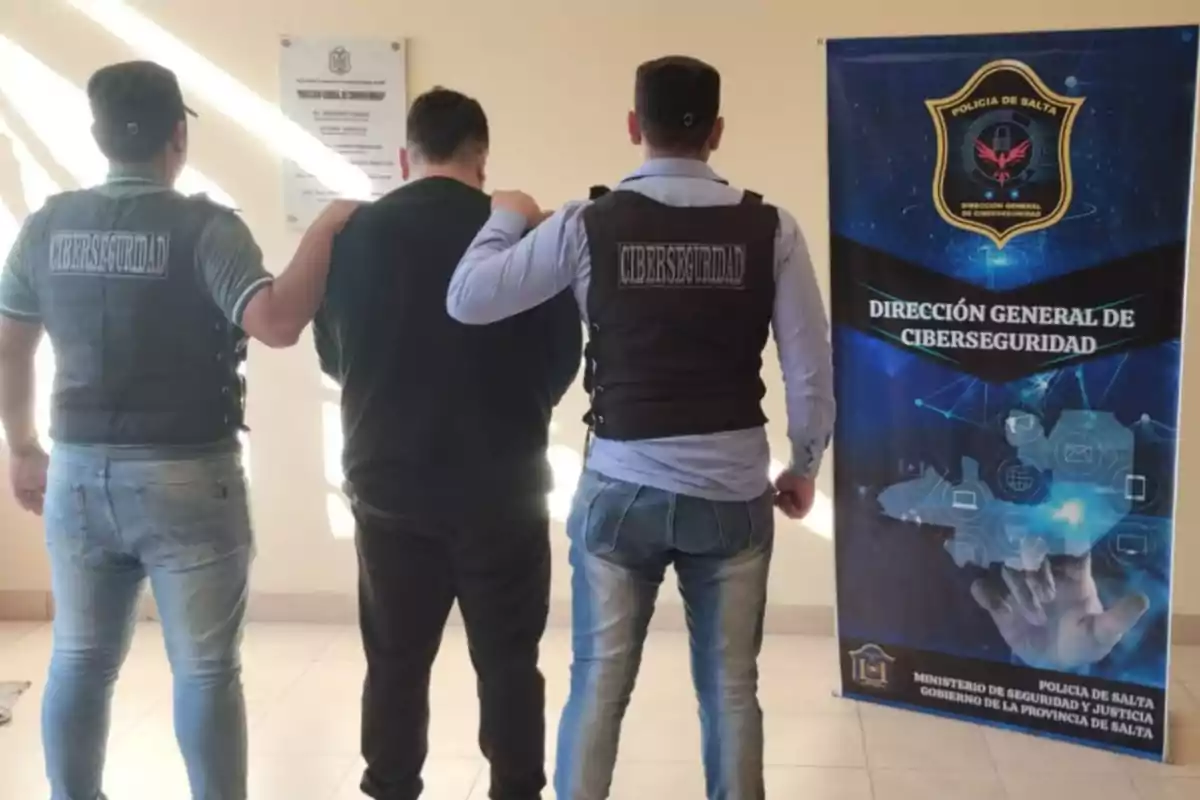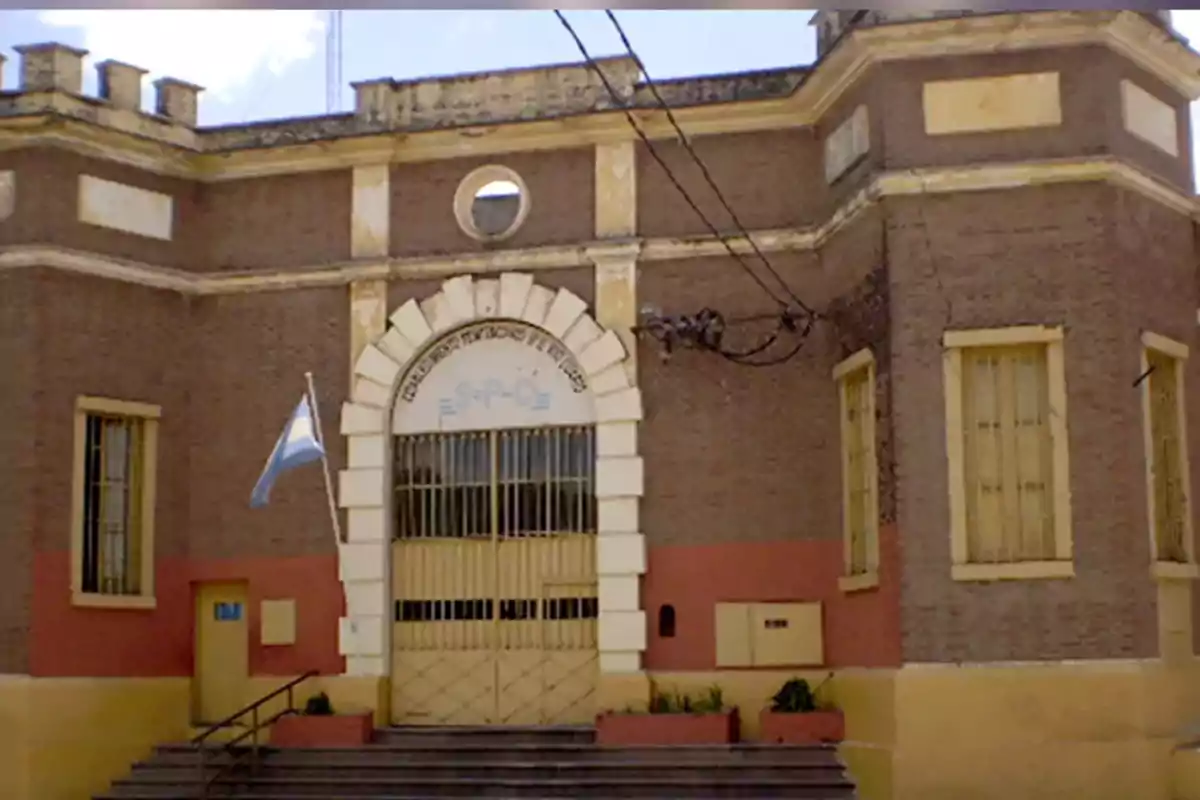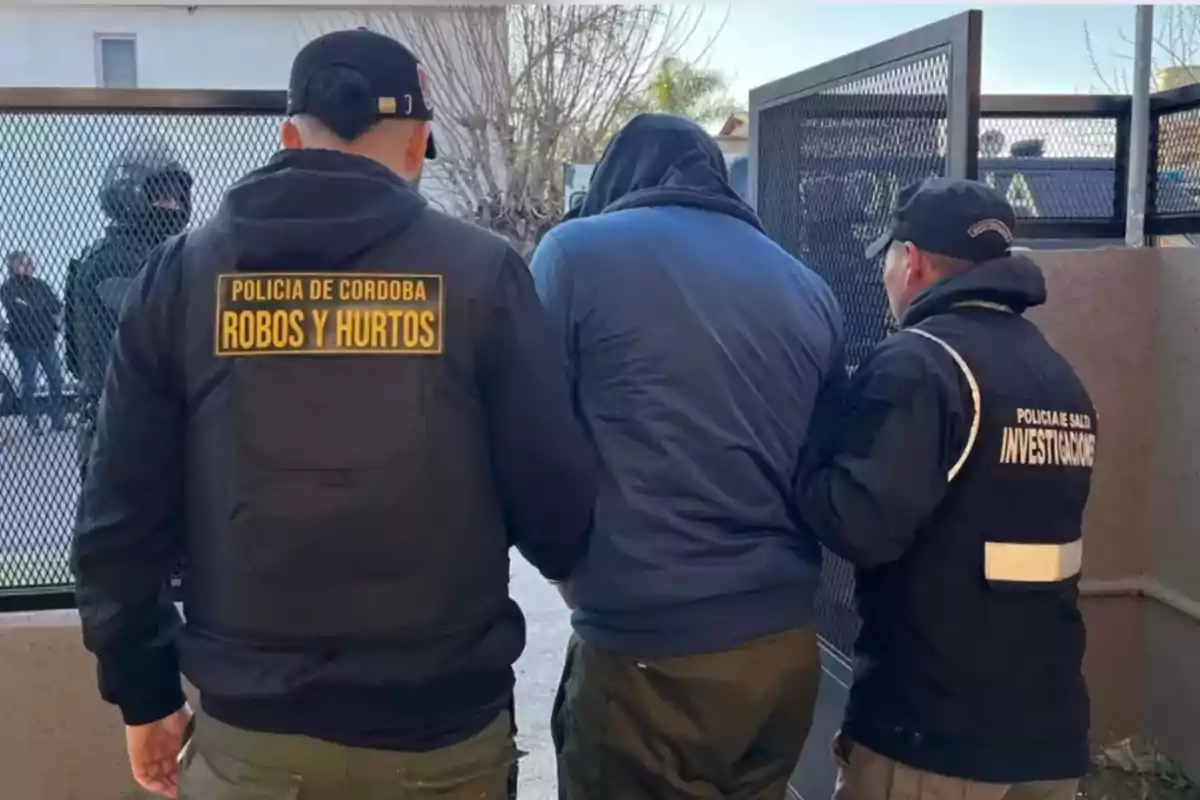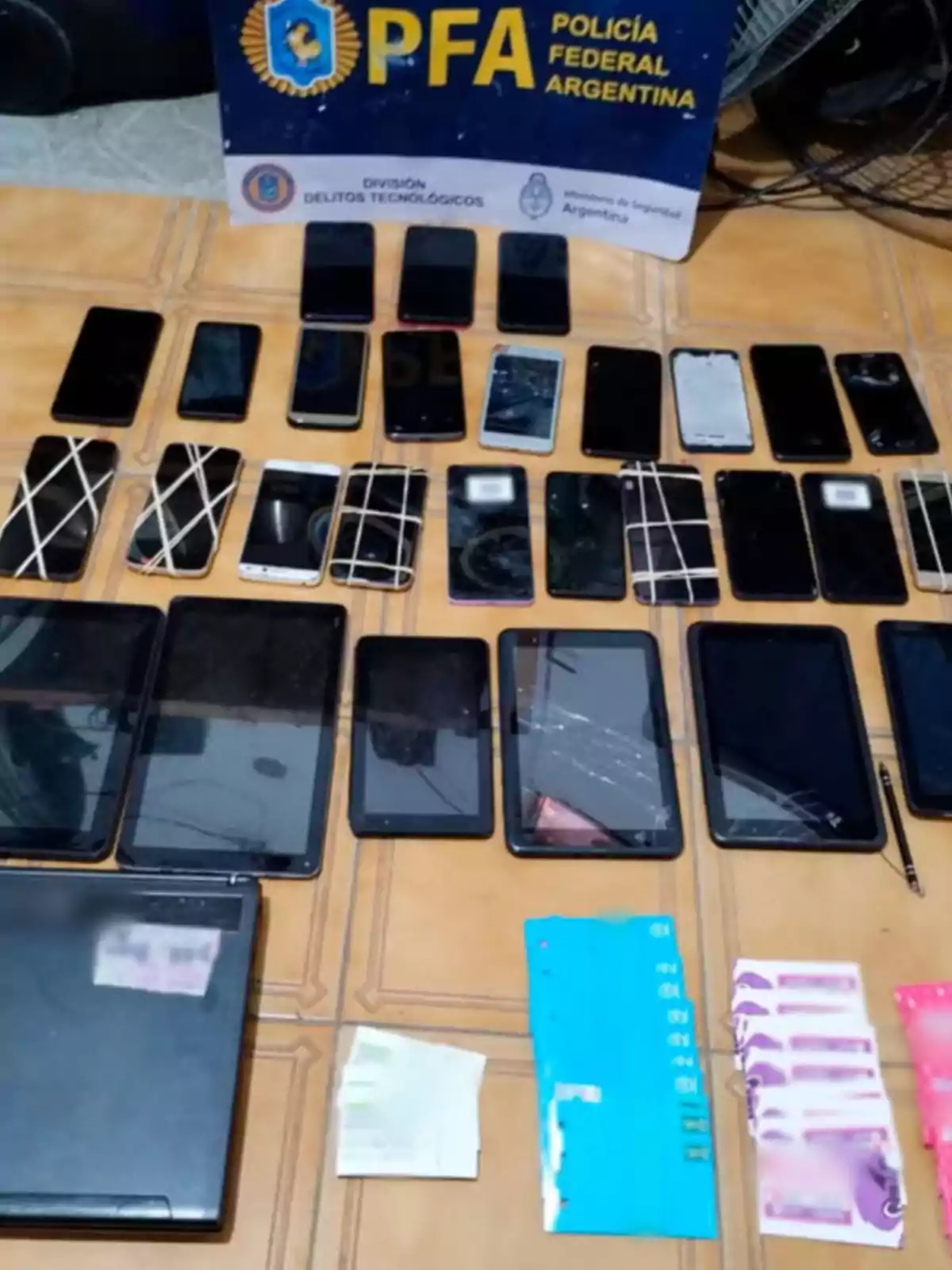
Tumbero call center in Córdoba: Los Loros gang dismantled in Río Cuarto
Prisoners from Río Cuarto were scamming families from Salta with call center scripts. There are 17 people in custody after the operation
Salta Police and Córdoba Police carried out multiple raids to dismantle the Los Loros Gang. The group was made up of five inmates from the Río Cuarto prison, accused of organizing scams using a so-called "prison call center" scheme. From inside the prison, they offered non-existent products on digital platforms.
The inmates had designed written scripts that imitated the service of a call center, with repeated phrases to manipulate their victims. The material was seized in five cells, along with cell phones and notes. According to investigators, the scams precisely reproduced customer service schemes.
The distance between Salta and Río Cuarto, of more than 1,000 kilometers (621 miles), made them believe they could operate with impunity. However, the joint work between both police forces made it possible to dismantle the organization.

The role of digital mules
In addition to the five inmates, two women were arrested in Río Cuarto and General Cabrera, accused of being "digital mules." Their role was to receive money from fraudulent transfers in virtual wallets and then launder it. That circuit made it more difficult to trace the funds.
The victims were induced to make a bank transfer after a supposed purchase agreement. There was never any delivery of products: the appliances, bicycles, or cell phones never existed. Once the money entered the accounts, the fraud was already complete.
The scripts found in the cells included detailed instructions on how to gain the buyers' trust. The inmates pretended to be reliable sellers, cleared up doubts, and exerted pressure to close the deal.

Organized criminal structure
Inside the prison, there were defined roles: "publishers" who posted the fake ads, "negotiators" who spoke with the victims, and "recorders" who registered bank accounts. The scripts were perfected with cross-outs and corrections to ensure effectiveness. All this material was seized as evidence.
The investigation, based in the Salta courts, made it possible to trace the operation and confirm that the scams were designed in several stages. After posting non-existent products on Marketplace, they moved on to more direct contact via WhatsApp or phone calls.
Once the victim trusted them, the final order arrived: make the transfer to a pre-established account. That was when the fraud was completed. The persuasive method was designed to keep the victim trapped in the scam.

Interprovincial mega-operation
The procedure was not limited to Río Cuarto: in Córdoba capital, more than 80 raids were carried out for scams and other related crimes. Ten people were arrested there, some linked to vehicle thefts and home invasions. According to the investigation, several stolen cars were transported to Bolivia.
In total, 17 people were arrested: the five inmates from the Río Cuarto prison, two digital mules, and ten suspects in Córdoba capital. The operation was supervised by Córdoba Security Minister Juan Pablo Quinteros and his Salta counterpart, Gaspar Javier Solá Usandivaras.

More posts: